It might seem overwhelming to begin an eCommerce site, with so many other platforms already out there. But there is no doubt that creating an eCommerce store will boost your business sales and may currently be more valuable than physical stores.
Look through this article to gain a thorough understanding of creating your online store. Discover what eCommerce is, how to begin your eCommerce business, and which marketing efforts will best help you succeed.
What Is eCommerce?
Much like a physical store, an eCommerce platform showcases what the business sells. Instead of a shop window, there is the Home Page, and instead of your inventory being around the shop, customers should be able to see them by clicking on different web pages.
No matter what your products or services are, an eCommerce website is a great way to spread awareness locally or globally. There are plenty of ways to learn about eCommerce, from online courses, classes, books, and other resources, all of which we will discuss later.
Why Study eCommerce?
The more information you are armed with, the more likely your eCommerce business will be a success. It is possible to begin straight away and set up your business online. However, there are subtle factors to learn beforehand, including research, creating the platform, marketing strategies, content marketing, and Google Analytics.
Types of eCommerce Businesses
Before you do anything, we recommend you research different eCommerce business models. Once you have determined what kind of business yours falls into, the easier everything else will become. Doing so also allows you to discover what businesses similar to yours have done to create and market their products.
General Business Types
- Business-to-Consumer (B2C). The foundation for most companies is a business-to-consumer model. This is where a business sells a product or service to a customer.
- Business-to-Business (B2B). This is when businesses buy and sell from one another.
- Consumer-to-Business (C2B). This is where the consumer provides a business with value instead. Websites like Freelancer and Fiver are examples of this, as consumers list their skills (services) for companies to purchase.
More eCommerce Specific Business Types
- Direct to Consumer (D2C). This is when the product or service is sold directly to a consumer rather than to a retailer.
- Consumer-to-Consumer (C2C). Examples of C2C are things like eBay, where two consumers are connected and able to sell a product or service.
- Wholesaling. This is when a retailer offers its product in bulk at a discount and sold to generate profit.
- Dropshipping. This is when you create an online website to take orders without carrying any inventory. Instead, the vendor handles storage and shipping the product to the consumer. All you need is to create an eCommerce website that you can start with platforms like Shopify Store. But your business depends heavily on the vendor’s abilities.
- Affiliate Marketing. Similarly, you do not create products, but you become an affiliate for well-known companies and products. Then you link their products on your online content and receive a commission for every sale bought with your link.
- Subscription Service. This model is great for digital products. Netflix is an excellent example of it. Consumers pay monthly for the ability to watch Netflix content.
The Best eCommerce Platforms in 2020 and 2021
There is no one-size-fits-all with eCommerce platforms, so it will vary depending on your business model and what you sell. However, here are the most popular eCommerce platforms of 2020 and likely 2021, too.
Shopify
Shopify is a great platform for beginners who are just setting up their online stores. You can easily design your store and use the in-built analytics to keep track of your sales data. This platform is perfect for businesses in cosmetics, electronics commerce, fashion, apparel, home furnishing, food, and beverages.
WooCommerce
WooCommerce is a free plugin for those who have a website on WordPress. It is the best eCommerce platform for small businesses to build a robust online store. Similar to Shopify’s platform, it accommodates similar business sectors.
BigCommerce
As the name suggests, it’s suitable for bigger businesses with large or complex catalogs. It also supports “business-to-customer” and “business-to-business” models on the same platform. It is known for offering fashion, sporting goods, food, beverage, home furnishing, health, beauty, automotive, wholesale, and distribution.
Squarespace
Squarespace is a website builder to help entrepreneurs or small businesses create an eCommerce website. This is not suitable for large companies. However, it is an excellent option for digital services and small quantities of products.
Salesforce Commerce Cloud
This is an enterprise-level eCommerce platform that offers a vast range of capabilities. It’s a fantastic fit for multi-national companies that generate millions of dollars. It is popular for cosmetics, fashion, sporting goods, toys, games, cars, parts, manufacturing, chemicals, and food and beverages.
Overview of eCommerce: Step-by-Step
Below is a quick list of the steps you need to take to launch an eCommerce business. To explore more details on these steps, read more below.
- Research The Market
- Take Some eCommerce Classes
- Plan Your Product/ Service
- Register Your Business
- Gather Your Essentials
- Create Your Store Online
- Launch Your Business
- Marketing
How to Learn eCommerce: Step-by-Step
Let’s take a closer look at some steps to create an eCommerce business. Think of these steps more like guidelines to start your research.
- Research the Market
Research is critical when beginning any business, especially an eCommerce business. Research whether your product or service is gaining in popularity, discover your target market, which business model would suit you best, and study what niche and USP you provide that others don’t. - Study eCommerce
Taking some courses or training could significantly boost your foundations to create and manage a great eCommerce business. This does not mean you need to get a degree in business (although it wouldn’t hurt), even online courses and training will help you reach your goals. - Product and Service Planning
Every great e-commerce business starts with a plan. Once you are armed with information from your research and studies, you can begin to plan your daily, weekly, monthly, and yearly goals. Start with what you plan to sell, how you plan to sell it, and where to do so. - Register Your Business
Creating a brand for yourself is challenging at the beginning of your business. Your brand name, logo design, website color scheme, and layout will need to reflect you and your product or services.
You will then need to register your business name and get your business licenses to gain tax benefits and sell products. A great option is to ask a business how they did this and find out all the necessary paperwork involved. - Gather Your Essentials
Create a few places for your business documents, create website pictures, website content, and make your product or service outlines. You may need everything from proposals, estimated projections, contracts, budget, and figure out your break-even point in sales and duration in terms of your business documents. - Create Your eCommerce Store
Choosing the right eCommerce software is not easy. You will need to begin by registering your domain name. You also need to carefully evaluate things like features, loading speed, different payment gateways, your web developer skills, and SEO. - Launch the Business
The exciting launch time has arrived, time to start promoting and selling. Once your business is up and running on your online platform, you can start tracking your sales and collecting statistics on your customer’s purchasing. This way, you are preparing for the final step to creating your eCommerce business online. - Marketing
The best way to promote lead generation is through digital marketing. Building your marketing strategy can start at the research phase but can be implemented once you’ve launched the business.
You can have customers subscribe to your email through a button, and you can craft great marketing emails to make them aware of new products. There is also social media and content marketing to consider. You can create blogs, articles, photographs, and more to spread brand awareness and drive more organic traffic to your website.
The Best eCommerce Training, Classes, and Courses

To successfully gain an overall mastery of eCommerce, you may need to do more than just an eCommerce class. It can take a mixture of different skills from sales, web design, digital marketing, Google Analytics, and SEO.
Therefore, below we have two sections: specific eCommerce courses and training related to eCommerce, which gives a broader range of training that could come in useful for eCommerce.
The Best Online eCommerce Courses
Below are some great choices for discovering more about what eCommerce is and studying the subject online. Due to the coronavirus pandemic, we could not find any genuinely in-person courses, so we have settled for online learning.
Linkedin Learning
WordPress Ecommerce: WooCommerce
Choosing an eCommerce Platform for Developers
- Time: Varies
- Price: Varies (First Month is Free)
These Linkedin training classes provide valuable content for eCommerce and a certificate of completion to add to your profile. Learn everything from the foundational knowledge to how to use specific platforms.
Digital Marketer
- The Ecommerce Marketing Mastery Course
- Time: 3 – 7 Days
- Price: $495
This intermediate to an advanced course provides students the ability to become a certified eCommerce marketing specialist. Students will learn everything from the eCommerce ecosystem, core store architecture, Email automation, content amplification, and much more.
Best Classes Related to eCommerce
Below are a couple of online fundamental marketing courses to help beginners learn about digital and email marketing. Broaden your knowledge to complement your eCommerce business goals.
Google Digital Garage
- Fundamentals of Digital Marketing
- Time: Self Paced
- Price: Free
This is Career Karma’s top complete beginner’s digital marketing course pick. If websites, social media, and SEO are confusing to you, this course will take you through it for free. What’s more, you can get a certificate of completion at the end of it.
LinkedIn Learning
Creating and Managing a YouTube Channel
What is social media marketing?

"Career Karma entered my life when I needed it most and quickly helped me match with a bootcamp. Two months after graduating, I found my dream job that aligned with my values and goals in life!"
Venus, Software Engineer at Rockbot
- Time: Varies
- Price: Varies (First Month is Free)
Some extra Linkedin courses will help boost your knowledge of affiliate marketing, social media marketing, and SEO link building. These are great for beginners to intermediate students and those who have just started their eCommerce business.
HubSpot Academy
- Get Certified in Email Marketing
- Time: 3.20 Hours
- Price: FREE
This HubSpot course is an excellent start to crafting your own email marketing. It will teach you the basics of inbound marketing for beginners who want to create their email marketing content.
Best eCommerce Books
Another way to build your affiliate knowledge is with books, e-books, and audiobooks. These are a great way to flesh out your understanding of it. Below are Career Karma’s top affiliate marketing book picks.
Ecommerce Evolved: The Essential Playbook To Build, Grow & Scale A Successful eCommerce Business, Tanner Larsson.
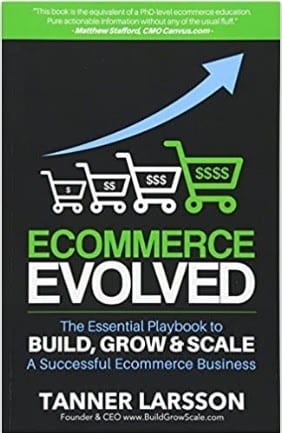
This book discusses strategies, eCommerce data, automated marketing campaigns for both the frontend and backend of your business.
Profit First for Ecommerce Sellers: Transform Your Ecommerce Business, Cyndi Thomason.
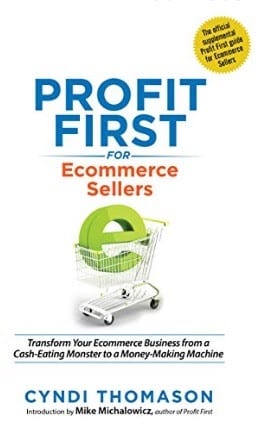
Thomason’s book focuses on four critical areas that today’s eCommerce sellers struggle with when growing their businesses. Thomason reviews managing inventory, relying on debt, financial data, and maintaining focus.
eCommerce Business Model 2020, Jim Work, George Brand.
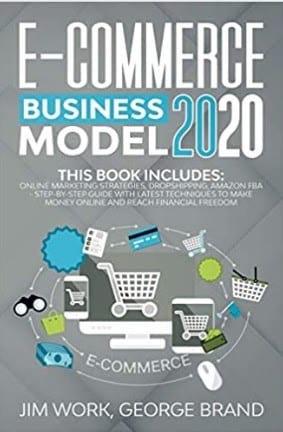
Brand’s book focuses on online marketing strategies, dropshipping, and Amazon FBA. It is a great step-by-step guide to making money online.
Other eCommerce Resources and Tools
The Internet is a valuable learning tool. Below are some examples of websites that will teach you new skills and awareness about affiliate marketing.
Youtube.com
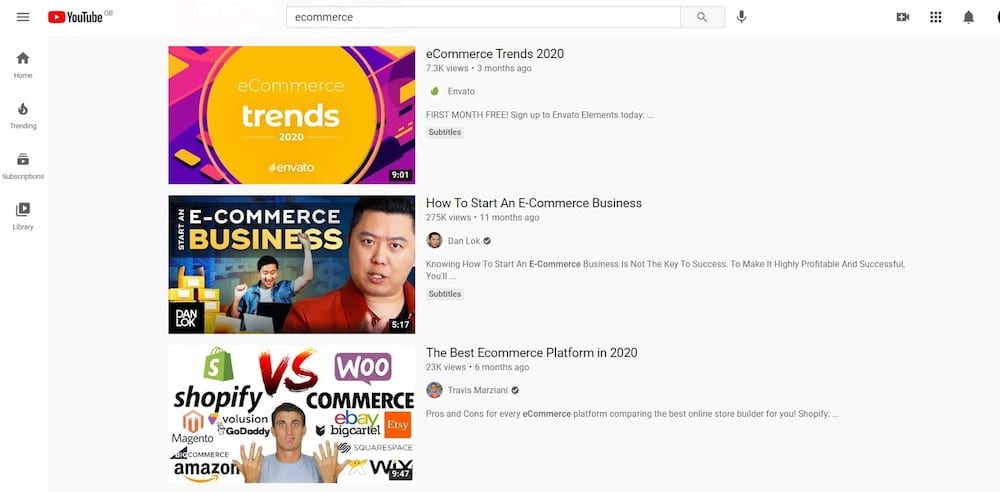
There are plenty of how-to-videos on eCommerce and plenty of content on the subject. These are great for those looking to get a rough idea of what eCommerce is all about.
Shopify.com/blog

Learn lots of pro-tips on how to set up Shopify for different products and industries. It is a great resource for those looking to set up shop with Shopify.
Smallseotools.com
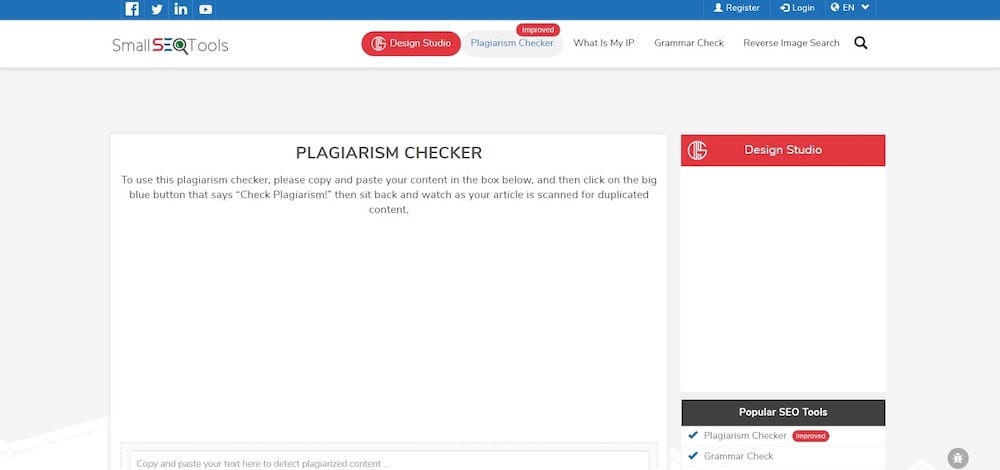
For any kind of content creation, a top SEO tip is to use a plagiarism checker. It shows you if your content is considered original by Google’s algorithm, making your content more valuable and rank higher.
Conclusion: Learn eCommerce to Boost Your Online Business

The value of having an eCommerce business for those with a store, or those with a product idea, is hugely profitable. With another lock-down looming over the months ahead, it’s all the more reason to extend your business to an online platform.
If the prospect of sharing your products or other people’s products online sounds exciting, then use our steps to guide you on your journey. The beauty of a business online is that you can do it anywhere and possibly keep earning even amidst a global pandemic.
Lastly, we hope this article lit a fire in you to keep researching, learning, and growing in knowledge and wealth. We wish you well on your eCommerce training and hope you can achieve your business goals, one step at a time.
About us: Career Karma is a platform designed to help job seekers find, research, and connect with job training programs to advance their careers. Learn about the CK publication.
